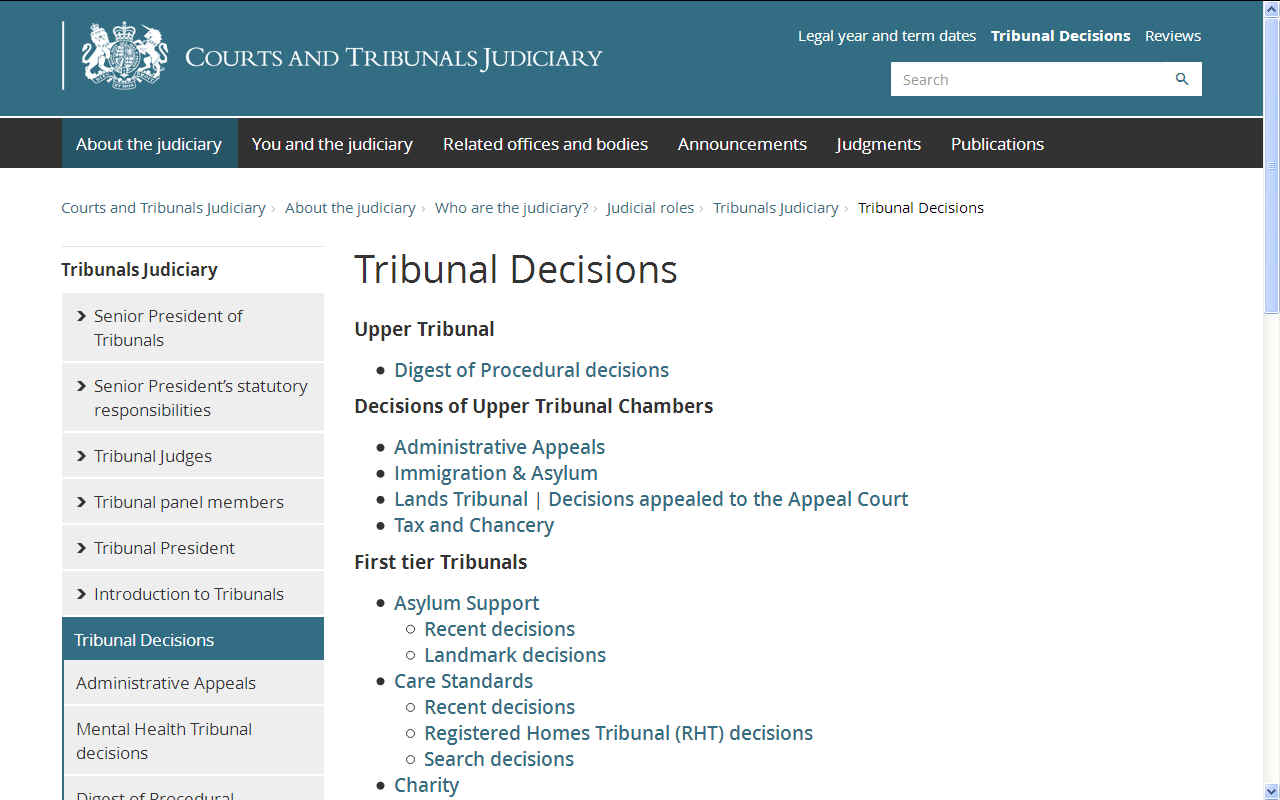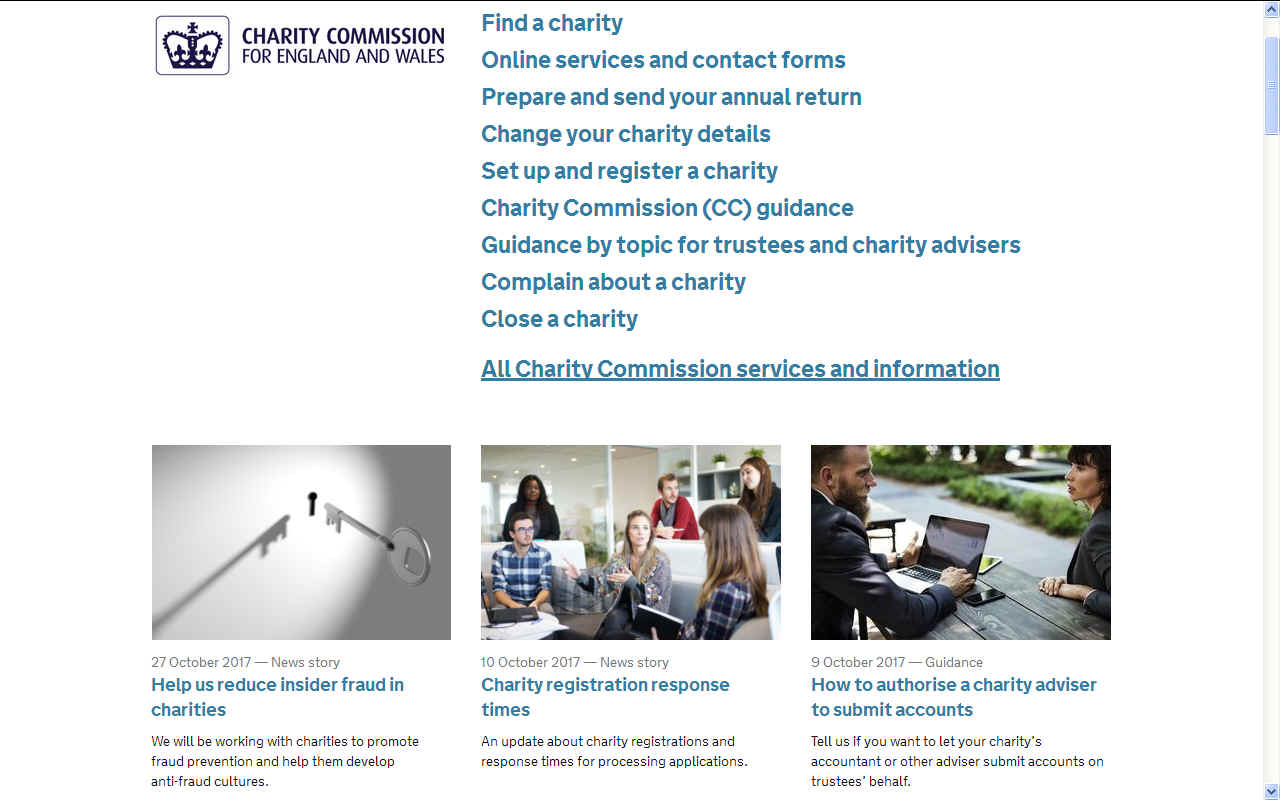|
TRIBUNAL APPEALS & JUDICIAL REVIEWS
ABOUT - APPEALS - CONTACTS - DONATE - EDUCATION - FOUNDATION - OBJECTS - POLITICS - HOME - A-Z INDEX
Concerning the definition of a charity, it is possible to be a charity but not attain registration as such under the present British system. This might be where a not for profit with charitable objectives may pursue unconventional or innovative approaches to achieving their objectives. Anything unconventional is generally not understood by such institutions, who may not be able to afford to appeal to a Tribunal or seek a Judicial Review. In such circumstances any charity concerned is still a charity by way of not for profit objectives, provided that they do not offer dividends to their Trustees or any member of the public, or seek equity funding.
Indeed, once the reasons for any refusal of registration are defined, this may help the organizations that fall into this category, to crowd fund their projects, to push forward the boundaries of human endeavour free of the stranglehold of the administrative burdens that registration imposes.
Appeals are commonplace, contrary to the advice you may have received in correspondence. Indeed, it appears to us that the Commission use the application process to extract information where they intend to resist any application, bringing into the frame the possibility of discriminatory practices that have become institutionalised. The method used is to ask multiple questions based on assumptions that we presume are gathered via other agencies, that may also be basing their assumptions on misinformation.
Misinformation is dangerous as when Prime Minister Tony Blair and his Government used (generated) false intelligence to be able to invade Iraq. This was of course bogus information that allowed an invasion based on a lie. Lesser cases of using false intelligence involves the armed police and the shooting of innocent members of the public. We are therefore concerned to get to the bottom of where such misinformation comes from. Where such activities contradict a sustainable society based on truth - as per SDG16 of the present United Nations agenda, aiming for a circular economy justice and peace.
WEBSITE - You will find a lot of information about setting up and running your charity on their official Government website.
Should you wish to test the water and assuming that you have the funds in-house to do so you should know that the Tribunals and Courts hear around one million 1,000,000 charity cases a year. That is two thousand, seven hundred (2,700) cases a day, 345 cases an hour, or 5.78 cases every second. Wow! Great if you are a lawyer and what a wonderful career to get into with so much legal business being generated. How much of this is fabricated, based on bogus information such as to make work for the boys is anyone's guess.
Making laws to over police the state and create jobs for the boys, is called noble cause corruption. Fabricating evidence to obtain a decision favorable to people control is part of noble cause corruption, a system that you may not consider to be so noble after all in United Nations terms of anti-discrimination statute that is regularly flouted by local and national government as it suits their purposes. There is no anti-corruption force in the United Kingdom. A decision that appears to be designed to perpetuate control by civil servants, even where they may have developed cozy relationships and be corrupt.
THE
APPEALS PROCESS
HOW TO APPEAL
If you are unhappy about the decision made by the judge in your case, you may be able to appeal against the decision to a judge in a higher court or in the case of tribunals to the Upper Tribunal or Employment Appeal Tribunal.
There must be proper grounds for making an appeal and there are strict time limits within which to do so.
It is not possible for court staff or other government officials to review a judgment made by the courts. This is because the judiciary are held to be entirely independent, even though masonic connections plague the operation of impartial justice. Regardless of that hurdle, the courts should at least be free to decide the outcome of cases without fear of interference from Government or its administration. The odds of not getting a Judge with masonic links is rare. Be warned.
JUDICIAL REVIEW
Judicial review is a type of court proceeding in which a judge reviews the lawfulness of a decision or action made by a public body such as the Charity Commission.
In other words, judicial reviews are a challenge to the way in which a decision has been made, rather than the rights and wrongs of the conclusion reached.
The courts are looking for procedural irregularity or
impropriety.
If you want to argue that a decision was incorrect, judicial review may not be best for you. There are alternative remedies, such as appealing against the decision to a higher court.
Of course this costs money that your organization may not
have, in which case it might be better to cease operations
altogether, rather than grease the palms of lawyers. You may
want to consider switching tack to founding a charity aiming
to promote human right and judicial correctness. Good luck
with that in the United Kingdom, where noble cause corruption
is rampant.
* Certain decisions of the immigration authorities and the Immigration and Asylum Chamber;
* Decisions of regulatory bodies;
* Decisions relating to prisoner’s rights.
TRIBUNAL PANELS
Tribunals are specialist judicial bodies which decide disputes in a particular area of law. Most tribunal jurisdictions are part of a structure created by the Courts and Enforcement Act 2007.
LINKS & REFERENCE
http://charity.decisions.tribunals.gov.uk/ https://www.gov.uk/government/publications/charity-appeals-register-of-tribunal-cases/charity-tribunal-register-of-cases
This website is provided on a free basis as a public information service. copyright © Cleaner Oceans Foundation Ltd (COFL) (Company No: 4674774) 2019. Solar Studios, BN271RF, United Kingdom. COFL is a charity without share capital.
|

